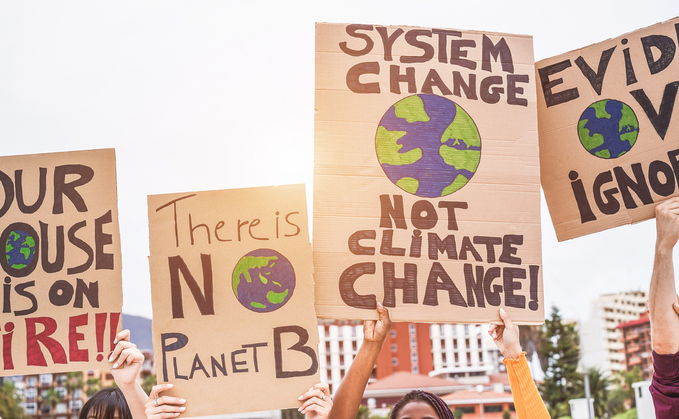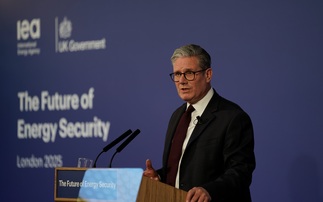
Credit: iStock
Environmentalism is by far the most popular ideology in the UK, businesses and politicians should build on that natural advantage
The unrelenting waves of criticism aimed at the environmental movement by various political tribes and media opinion formers serve to create the impression environmentalism is a marginal pursuit - well-meaning but flawed at best; an actively anti-human act in economic sabotage at worst. But fascinating new polling this week from YouGov has shown how this caricature is singularly failing to cut through with the public.
When over 2,000 adults were asked which ideologies they viewed favourably or unfavourably, environmentalism was the most popular by quite some distance and across all age groups.
Sixty-four per cent of people had a favourable opinion towards environmentalism, including 20 per cent who had a very favourable opinion. Just six per cent had an unfavourable view, with a further 12 per cent having a somewhat unfavourable opinion.
Feminism was the only other ideology to get close in terms of public support, with 56 per cent seeing it positively. The mainstream political philosophies such as liberalism, socialism, and conservatism tended to split the public, while more extreme worldviews such as communism, anarchism, and fascism commanded only marginal support.
In contrast, environmentalism enjoyed over 60 per cent support across all age groups and was by far the most popular ideology for Labour, Lib Dem, and Green voters. It was ranked in second place by Conservative voters, but only because conservatism came first.
The disconnect between the characterisation of environmentalism in much of the media and its broad popularity deserves to be challenged, especially when Reform - the only Party whose voters do not look favourably on the environment - is apparently on the march.
As David Powell at Climate Outreach noted yesterday, "it's easy to be cynical and say people are dunderheads who don't know what they want really - but that people are generally supportive of green stuff in the abstract is still a deep insight for climate comms". It is surely better to start from a point where the public is broadly positive and receptive towards what you are trying to achieve than to face the opposite situation? It's easier to do things people like.
Of course, climate action and nature recovery still face immense challenges and complexities. There are countless trade-offs, tensions, and injustices that will need to be navigated as the clean energy transition gathers pace. People are complicated and hypocritical. Many will like environmental action in principle and dislike it in practice. Critiques of environmentalism may be overstated, but some of them contain more than a grain of truth. The environmental movement and the wider green economy need to work much harder to challenge the perception they are elitist pursuits that will impose costs on working people.
But equally, green businesses and politicians can afford to be more confident in positioning their products and policies as part of an environmentalist ideology that the vast majority of the public look upon favourably. People want to live in balance with nature, they want to tread lightly on the Earth, they want to avert a climate crisis that threatens to overwhelm the only known habitable biosphere in the universe. These things are popular because they are objectively good. Why not tell people if you are working to deliver them?
This may sound controversial, but sometimes we should try to give people what they want.
A version of this article first appeared as part of BusinessGreen's Overnight Briefing email, which is available to all BusinessGreen Intelligence members.










